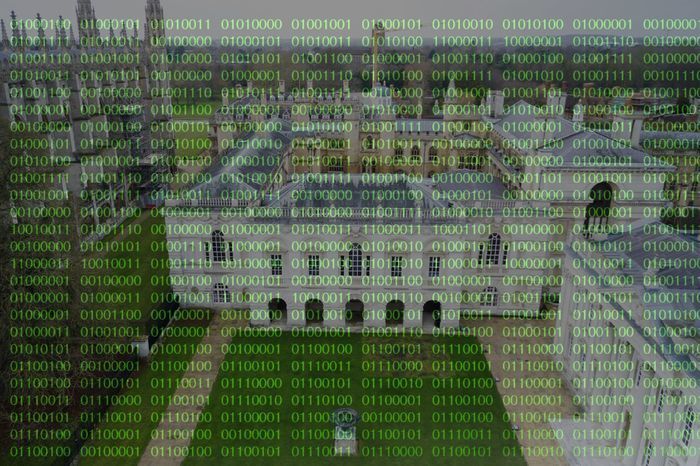HSPS scraps online exams over AI fears
Students were told ‘too many’ of them had used Chat-GPT on their exams

The HSPS faculty has been forced to revert to online exams due to “too many” of their students using artificial intelligence (AI) in assessments.
First and second year HSPS students have been informed that their 2025 examinations for Sociology and Anthropology will be in person and handwritten due to concerns around AI.
When a member of the faculty was asked about the rationale behind in person exams in an introductory sociology lecture, they indicated that the change had been made because “too many of you guys were using AI in your exams”.
All part I and part II Sociology and Social Anthropology exams were in an online open book format last year.
Third year students will still continue to do exams online, and will have a longer window to complete them. These exams will also be open book, with all others being closed book.
The move is designed to tackle the use of Generative AI models such as ChatGPT, which are language programmes capable of producing academic pieces of work.
Earlier this year, the HSPS faculty published an open letter calling on students to reject the use of Generative AI in academic work as it threatened to “rob you of the opportunity to learn,” and stated that “under no circumstances should the text generated by such AI-assisted tools be presented as your own work”.
The letter also informed students that “zero-AI assessments (such as invigilated exams),” were being explored to prevent the use of AI in exams.
In March, a Cambridge study claimed to have discovered the “tell-tale signs” of essays written by AI. The study, conducted by Cambridge University Press and Assessment, compared ChatGPT assisted essays written by three university students to 164 GCSE essays.
The paper claimed that AI tended to start paragraphs with “however,” “overall,” or “moreover,” and frequently use numbered lists and latinate vocabulary. This research also found ChatGPT-assisted work performed poorly on analysis and comparison skills. The work performed well on information and reflection skills.
In 2023 a Varsity survey found that almost half of all Cambridge students had used AI to complete university work, with almost a fifth of respondents having used AI to produce assessed work for their degree, such as coursework.
Cambridge currently has a total ban on the use of AI technology in assessed work, treating it as academic misconduct, but use guidance for non-assessed work varies by department.
English students were told in Lent term that AI can be useful for “sketching a bibliography on a given topic” and “assist[ing] early stages of the research process,” but this should be done in consultation with their supervisor.
Some first year engineering students had also been advised to use Chat GPT to structure coursework, as long as they disclosed that they had used it and included the prompts that they used.
In a Meeting of the Teaching, Learning and Quality Committee in May, members of the HSPS faculty indicated that they desired to adopt typed in person exams, rather than handwritten, and would “continue to lobby the University,” for the resources to implement this change.
Last term, second-year English students encountered significant technical issues while taking an in person typed exam while using an examination software called Inspera. During the exam, students were unable to complete the second section of their paper, and many found that their essays had been deleted.
Dr Andrew Sanchez, Chair of the HSPS Tripos Management Committee, said: “The HSPS faculty has implemented in person, handwritten exams for Pt 1 and Pt 2a HSPS students for Sociology and Social Anthropology papers. This decision responds to concerns around the use of AI in online examinations, and follows discussion within the HSPS faculty and Tripos Management Committee last academic year.”
“Throughout this process, the feedback of student members of the Tripos Management Committee has been sought, and those members have been briefed on any changes,” he continued.
 Comment / Plastic pubs: the problem with Cambridge alehouses 5 January 2026
Comment / Plastic pubs: the problem with Cambridge alehouses 5 January 2026 News / New movement ‘Cambridge is Chopped’ launched to fight against hate crime7 January 2026
News / New movement ‘Cambridge is Chopped’ launched to fight against hate crime7 January 2026 News / Uni-linked firms rank among Cambridgeshire’s largest7 January 2026
News / Uni-linked firms rank among Cambridgeshire’s largest7 January 2026 News / SU stops offering student discounts8 January 2026
News / SU stops offering student discounts8 January 2026 News / Cambridge businesses concerned infrastructure delays will hurt growth5 January 2026
News / Cambridge businesses concerned infrastructure delays will hurt growth5 January 2026









